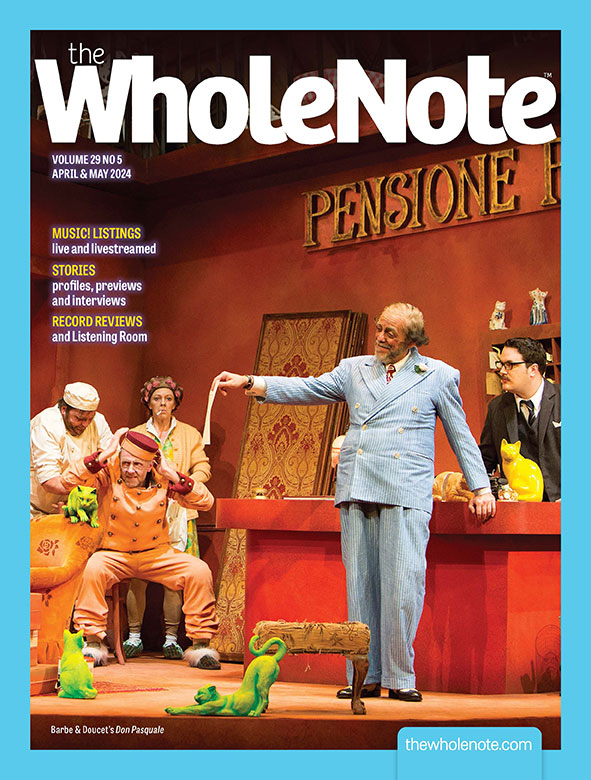Let me explain. Sunday, Colin Eatock my editor said “What’s the title of your piece for this month?” (The table of contents had to go to the printer early, you see.) So I told him.
And now here I am, two days later, hoist with my own petard, wondering what the hell I was thinking of.
Maybe I was planning to write about the fact that up until the year of my birth, 1952, the Olympics offered medals for much more than sport. Canadian composer John Weinzweig, in fact, won a silver medal for composing at the 1948 London Games. I kid you not. But Martin Knelman at the Toronto Star scooped me on the Weinzweig story, almost two weeks ago. (He makes a habit of this sort of thing. Just ask the folks at the COC.)
It would have been a good story too. I would have started by musing on the irony that artists got booted from the Olympics in ‘52 because, the IOC said, the good ones were all professional, and therefore in violation of the Games’ principles of amateurism. And I would have finished by muttering darkly at how in Vancouver 2010 we couldn’t think of anyone better to light the torch symbolizing all that is good in amateur sport than an individual whose own career epitomizes the extent to which in North America professional, mercenary sport reigns supreme.
Or maybe I was thinking that I could find something interesting to say about the relationship between music and sport. And there probably is something worth exploring in that. “Compare and contrast the relationship of music and the Olympics to the relationships between a) music and supermarket shopping, b) music and winning lottery tickets, c) music and cellphones, d) music and academy award acceptance speeches … .”
Maybe I was just going to say something about wishing for the good old days of the CBC. Or wonder out loud why a song called “Both Sides Now” has three verses. Or why anyone would come up with an arrangement of “O Canada” for an occasion like this that would prevent the crowd from singing along.
Maybe I was intending to write about Measha Brueggergosman’s stirring rendition of the Olympic anthem. But I must confess that I swooned so deeply when k.d. lang began singing Leonard Cohen’s Hallelujah that I did not resurface until the flags were flying, so I’d be lying if I said I was really there for that moment.
Or maybe I thought there was something profound to be said about the role of music in figure skating. After all, figure skating is dancing on ice, right? And dancers … . Well, never mind.
I have my athletic trophy somewhere (unless my mother finally threw it away). It was the cup I won in grade one in the Northcliff Primary School sports day. First prize for … fanfare if you please … the under six musical chairs race. You know how it works, right? Twenty people traipse in a circle round nineteen chairs till the music stops. Then everyone races for a seat. The person left standing gets eliminated, another chair gets taken away, and so it continues until it’s just me and Philip Rogoff left, circling the one remaining chair. Waiting for the moment when the music stops, so we can go for gold.
And now? I’m sitting round waiting for the “going for gold” to stop, so I can get back to the music.
Guess I’ve got an an even worse than usual case of the Toronto end-of-February-tell-me-please-what-is-my-destiny blues.
And only music can cure that.




